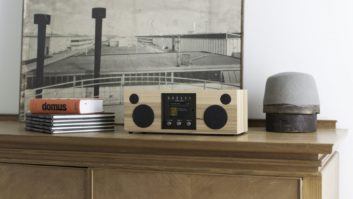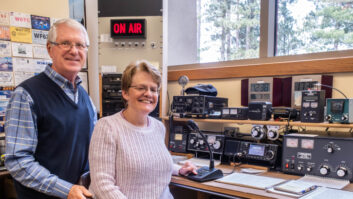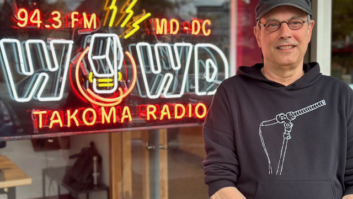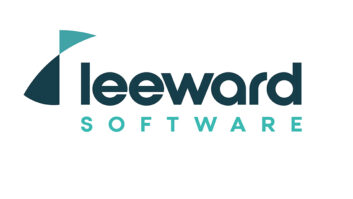Sat merger debate continues
Sep 1, 2007 12:00 PM
I’ve lived in Washington, DC, for more than two decades and pass the NAB headquarters several times a month. Recently, I observed a huge banner hanging from the building encouraging me to join the fight against the XM/Sirius merger. My thoughts went to Chriss Scherer’s two most recent Viewpoint columns, �Radio’s Real Fix� in June and �Satellite Radio Merger? Why Not?� in July.
In the latter, Chriss points to the fallacies of the NAB’s arguments against the merger. What seems to be forgotten is that the consequences of the merger succeeding are the same as if it were to fail. Should the merger not be approved, one or the other of the satellite radio systems will go dark after running out of money. No matter what the FCC rules, there will be only one satellite system in just a few short years.
The NAB is spending significant time, money and political capital distracting its membership and the general public, rather than investing more deeply in our industry’s fundamental needs. Oh, but were those resources invested in helping stations resolve the programming malaise Chriss describes that currently (and needlessly) exists on many HD Radio multicast channels? What if every radio session at NAB Radio 2007 and NAB 2008 was about HD Radio? How many thousands of HD Radio receivers could be �gifted� to help increase the public’s awareness in lieu of the anti-satellite fight?
Though well intentioned, the NAB’s anti-satellite radio campaign is unfortunately giving satellite more credibility. Equal vigor in evangelizing HD Radio to our own industry, much less the public, would provide a much better ROI.
Name and address withheld by request
Chriss,
I couldn’t agree more on your Viewpoint piece (July 2007).
Christopher Tobin
chief engineer/broadcast IT
1010 WINS-AM
New York, NY
Chriss:
I just read your July Viewpoint, �Satellite radio merger? Why not?� You could have taken the easy way out by avoiding the issue entirely or just sided with the big guys, but you didn’t. Considering the massive broadcast lobby forces involved, I congratulate you on a courageous and common sense editorial. Your choice to use logic, history and current marketplace analysis to make the point was very well thought out.
Sadly I can remember back when terrestrial radio markets had some true diversity. The very idea of a single company (or two) owning almost all of commercial radio in a single market was abhorrent (even to the FCC). With those days long gone, technology has at least allowed the American public other listening alternatives. If the public chooses not to pay for it, that’s their choice.
Your question, �What is the NAB afraid of?� is a good one. I think we all know the answer.
Bill Weisinger
Weisinger Engineering Services
Streetsboro, OH
The real authority
Chriss:
I’ll admit I was confused when I read your comment about the Harry Reid letter in your March Viewpoint. I’m not sure there was any political re-election campaigning going on in the senator’s response to Larry Fuss. Re-election, if he runs, would not take place until 2010 anyway.
In case all of us might have forgotten, LPFM was created by public pressure on Congress and implemented by the reluctant FCC after much political pressure. That same political process intervened and removed second-adjacent �interference� from the group of tools allowed for use by the FCC staff. It’s all political, and not a matter of rules and regulations. The rules were created by political pressure and modified from time to time by (surprise) Congress! Remember 1996 and the Telecommunications Act?
The FCC has authority to enforce the rules, propose rules, and Congress is the ultimate authority. Otherwise, why would those Senators (just today) propose to create rules for the FCC to follow and enforce language restrictions?
It’s all political, and Harry Reid was not campaigning, he was just doing what every other elected political official does: They get letters from home, and take action to appease the public or corporate pressure, as it appears in front of them.
It isn’t the FCC, but Congress that has the final say. Rules? If they can make them, they can take them away, obviously.
Don Mussell
consulting engineer, Broadcast Engineering
Services of Bonny Doon
Boony Doon, CA
Don:
Thanks for the letter. My concern is that the FCC has lost its muscle when it comes to enforcing its own rules. Then again, some may argue that the FCC never really had the muscle anyway.
� Chriss Scherer
We receive lots of letters, and can’t possibly print them all. Here’s a preview of one that you can read online at RadioMagOnline.com. Select the September issue contents.
Are you addicted?
Someone was asking me about the hours I keep at the station. I said they were rather flexible because I am on call 24/7. I then looked up the history in my cell phone.
I want to be clear about what I have set up so that you know: I have many devices and people that can call me. The door of the transmitter site is alarmed and there is a motion sensor inside. There is a silence sensor at the transmitter that calls my cell phone as well if there is no audio coming from the modulation monitor. There are also connections to the emergency power generator and main transmitter plate off. In other words there are many alarms that can call my cell phone from the transmitter.
We also have a studio. Folks can call me about equipment problems from about 4:30 a.m. until someone arrives at 9 a.m. during the week, and at any hour all weekend.
Back to my cell phone. The call history was mostly calls from my family. The last missed call from the station was about two months ago.
Continued atRadioMagOnline.com












